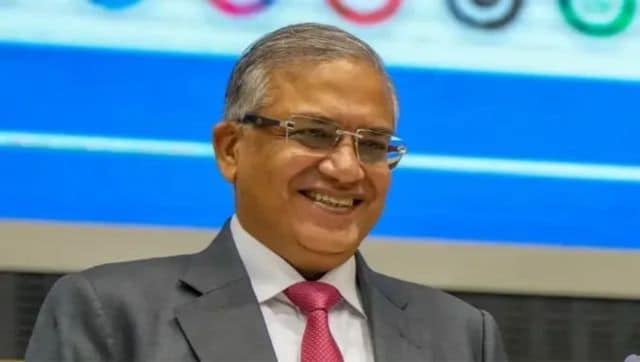Gyanesh Kumar, who was named as an Election Commissioner in March last year, has been appointed India’s 26th Chief Election Commissioner.
Replacing the outgoing Rajiv Kumar, his term will run till January 26, 2029, days before the Election Commission will announce the schedule for the next Lok Sabha election.
He will oversee the conduct of the Bihar Assembly election later this year and the polls in Bengal, Assam, Kerala, and Tamil Nadu next year.
Here’s all we know about the new Election Commissioner.
Gyanesh Kumar, a 1988-batch IAS officer from the Kerala cadre, is currently the senior-most Election Commissioner on the three-member panel that was led by Rajiv Kumar. He shares the panel with Sukhbir Singh Sandhu, an officer from the Uttarakhand cadre.
Before joining the
Election Commission in March 2024, Kumar had an extensive career in the Union Home Ministry. He played a pivotal role in drafting the bill that revoked Article 370 in Jammu and Kashmir in August 2019, a move that led to the bifurcation of the former state into two union territories. At the time, he was serving as Joint Secretary (Kashmir Division) in the Home Ministry.
A year later, as Additional Secretary, he was involved in handling key documents related to the Supreme Court case on the Ram Temple in Ayodhya, Uttar Pradesh.
Kumar has had a close working relationship with Home Minister Amit Shah, according to an NDTV report citing sources. He retired from the civil service in January 2023 as Secretary of the Ministry of Cooperation, a department also led by the Home Minister.
During his tenure, he oversaw the passage of the Multi-State Cooperative Societies (MSCS) (Amendment) Act, 2023, which aimed to enhance transparency and accountability in the cooperative sector.
His career has also taken him through various leadership roles, including serving as Secretary in the Ministry of Parliamentary Affairs. During the Congress-led UPA government, he was posted to the Defence Ministry. In Kerala, he held key positions such as District Collector of Ernakulam and Managing Director of the Kerala State Cooperative Bank.
Academically, Kumar holds a BTech degree in Civil Engineering from IIT Kanpur. He has also studied Business Finance at the Institute of Chartered Financial Analysts of India and pursued Environmental Economics at the prestigious Harvard University.
While Gyanesh Kumar’s appointment as Chief Election Commissioner (CEC) marked a smooth transition in leadership, it has not been without controversy.
The Congress, represented on the CEC selection panel by Rahul Gandhi, Leader of the Opposition in the Lok Sabha, has objected to what it calls a rushed decision. The party has urged the government to delay the appointment until the Supreme Court rules on a petition challenging the 2023 law governing the selection of the CEC.
Critics argue that this new law gives the ruling BJP significant control over the selection process. Under the system, a three-member panel comprising the Prime Minister, the Home Minister, and the Leader of the Opposition makes the decision. There are concerns that this could compromise the Election Commission’s independence.
Also read:
Why cementing Election Commission’s credibility is the need of the hour
Earlier this month, Gandhi had said in the Parliament that he did not trust the new process of CEC selection. Showing scepticism prior to the meeting, Gandhi had said that he would go but said the panel was already divided in a ratio of two to one. “Why am I even going? What is the purpose? I am going to the meeting only to certify what Modiji and Amit Shahji are going to say,” he had said.
Previously, in the absence of a parliamentary law, these appointments were made by the President based on the Prime Minister’s advice and usually, the senior-most Election Commissioner would become the new CEC.
Senior Congress leader Abhishek Manu Singhvi has been vocal in his criticism of this new law, particularly over its exclusion of the Chief Justice of India from the selection panel. He warned that this change could give the government undue influence over the Election Commission, undermining its credibility. “The government is seeking to control the Election Commission rather than preserve its integrity,” he said.
With input from agencies
Link to article –
Quicksplained: Who is Gyanesh Kumar, India’s new chief election commissioner?


